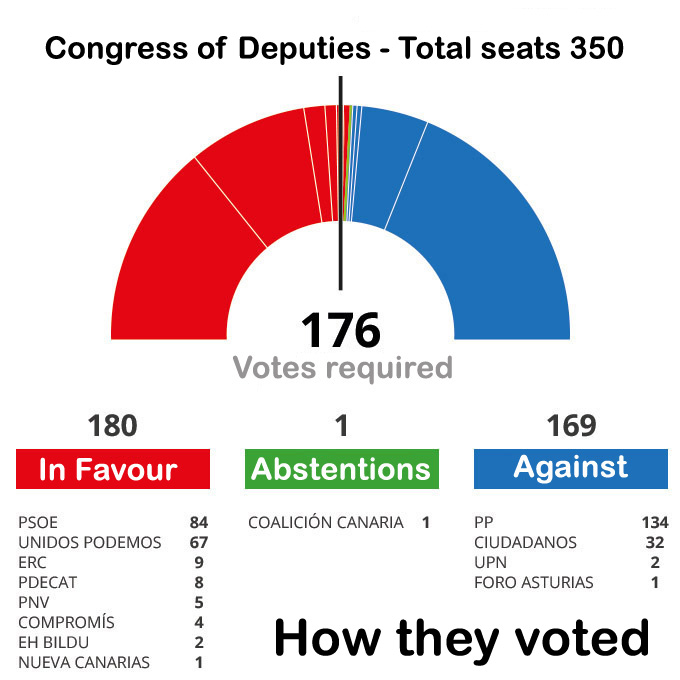Both the European Union and the US have given a vote of confidence to the new Spanish Prime Minister, the 46 year old Socialist politician Pedro Sánchez, after, on Friday, he successfully ousted former leader, Conservative Mariano Rajoy.
As predicted by the Leader last Monday, Rajoy was forced into a confidence vote by the opposition after he failed to take responsibility for his party’s involvement in yet another financial scandal that has exasperated Spanish voters, after Luis Bárcenas, one of its past treasurers was given a 33-year jail sentence a few days earlier.
So on Friday, Spain’s lower house, the Congress of Deputies, backed a vote of no confidence against Rajoy with 180 votes from the 350 members. PSOE leader Sánchez automatically became Prime Minister despite leading a party with only 84 seats. He was supported in the vote by a coalition made up of the left-wing Podemos, the Basque Nationalist Party (PNV) and the Catalan Republican Left (ERC).

The new Prime Minister was sworn in by the king on Saturday morning in the presence of Mariano Rajoy, the president of the Congress, Ana Pastor, the Senate, Pío García Escudero, the Constitutional Court, Juan José González Rivas, and the Supreme Court, Carlos Lesmes wher, for the very first time in the democratic era, he did so before the Constitution, but without the presence of a Bible or a crucifix.
He then went away to meet with several expectant parties, all with conflicting interests to see to, for agreeing to oust Mr Rajoy. In forming his provisional government it will be impossible for the new prime minister to satisfy all of his diverse coalition, many of whom voted with him purely in a bid to oust Rajoy rather than support any program presented by the PSOE.
But following his swearing in by the king on Saturday morning Sánchez tweeted “Democracy in Spain opens a new page. A stage to recover the dignity of institutions. From responsibility, dialogue and consensus, it is time to work for equality, to build a country that does not leave anyone on the way.”
He will need every ounce of political nouse that he possesses, as well as the intelligent exercising of prudent and clever governance, if he is to steer his way through the minefield that he now faces, as he attempts to establish himself in government.





